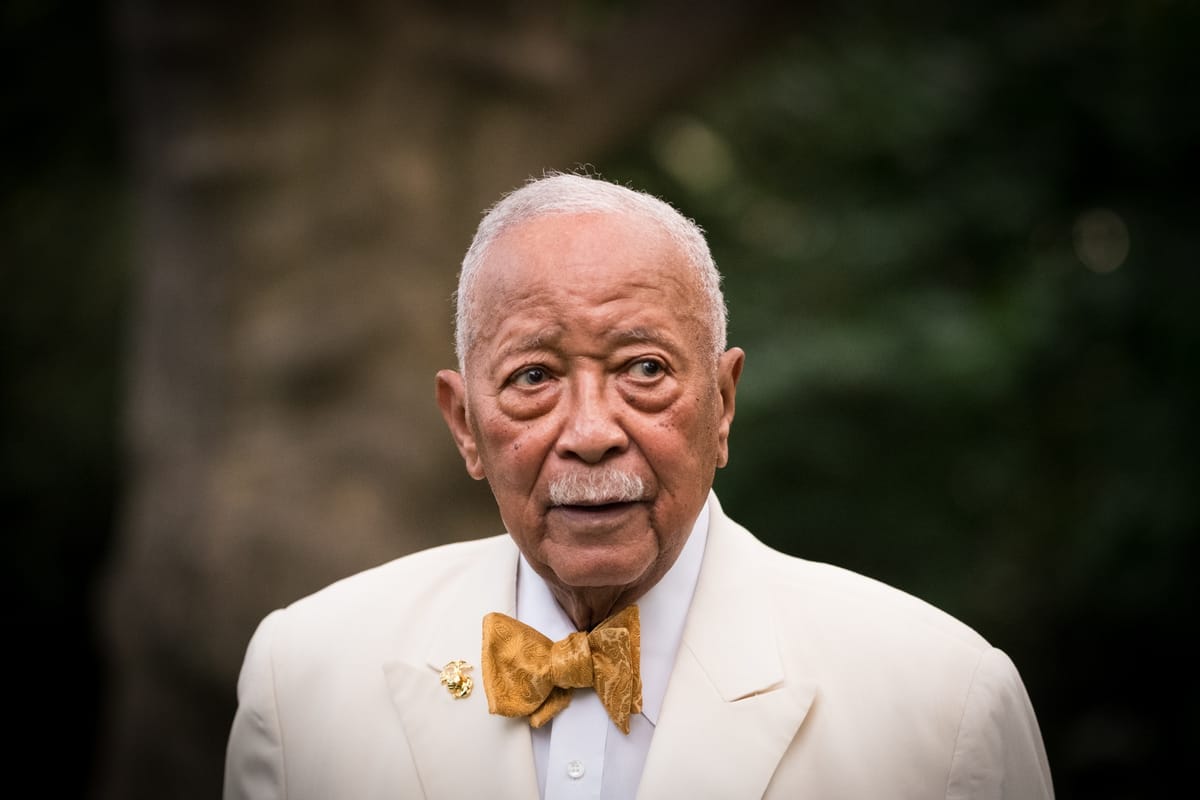David Dinkins, NYC’s First & Only Black Mayor, Dies At 93


David Dinkins, New York City’s first and only Black mayor who served one term died yesterday at 93-years-old. His wife Joyce died just two months earlier.
“This is someone who meant so much to us and was a guiding hand in our lives in so many ways. But what he did for the city, I think the way to say it is he simply put us on a better path, and he did it with heart and warmth and love. He was animated by love for people, all people. And David Dinkins believed that we could be better, he believed we could overcome our divisions. He showed us what it was like to be a gentleman, to be a kind person, no matter what was thrown at him, and a lot was thrown at him,” Mayor Bill de Blasio said this morning.
“And he always tried to answer the hate with love. It was remarkable serving with him in this building, to see that no matter what was going on out there, he always had that joy that he found, and it was particularly for children,” he continued.
“He loved children so deeply, and he did something about it, creating those amazing Beacon afterschool programs that continued to stay, that we’ve actually been expanding to reach more and more kids. This is something he believed in so deeply, everything that we could do for our child. And he had wisdom, an ability to stay steady, no matter how choppy the waters, it was just extraordinary.”
Dinkins was mayor during the Crown Heights riots in 1991, as AIDS, guns, and cocaine were killing thousands of people in the city that was also facing a $1.5 billion budget deficit.
The NY Times reported, “In a 2013 memoir, Mr. Dinkins acknowledged missteps during his term, including a failure to contain the race riots in Crown Heights in 1991, for which he largely blamed his police commissioner, and his refusal to break a prolonged Black boycott of a Korean-owned grocery store in Brooklyn in 1990. But he ascribed the narrowness of his victory in the 1989 mayoral election, and his defeat four years later, not to missteps but to the fact that he was Black.”
“He was extraordinary. He was beautiful, charismatic, principled, had a gentle but strong way about him. You want to talk about pioneers and groundbreakers when he ran for mayor, you know, this was really such a step forward. David Dinkins, Percy Sutton, Basil Patterson, Charlie Rangel, they were really barrier breakers extraordinaire when they were doing it,” Governor Cuomo said.
“They were cutting the brush and forging a path for so many to follow. But they went first, and the first person down the path, you catch all the briars, and all the scrapes, and when Mayor Dinkins was mayor, the city really had issues. But we’re all going to miss him. And he was really a New York champion and a beautiful New Yorker, and a mentor to me and a mentor to so many of us. So God bless David Dinkins.”
Public Advocate Jumaane Williams says it is difficult to express the impact Dinkins made in NYC.
“For me, a young man when he was elected, he was inspiring – I could not be the fourth citywide Black elected leader if he were not the first. It was a privilege to have met and spent time with him, and it is an enduring honor to work in the building he did for so long, one that now bears his name,” Williams said.
“Losing Mayor Dinkins now, just weeks after his beloved wife Joyce, is a solemn moment of sorrow for our city,” he said. “We owe him not only a debt of gratitude, but a commitment to try and realize his vision for what the gorgeous mosaic of New York City can be – uplifting each piece, and recognizing that it is at its strongest and most beautiful when the pieces are brought together, as was Mayor Dinkins’ mission. His passing leaves a gap in that mosaic as New York feels a historic loss.”




